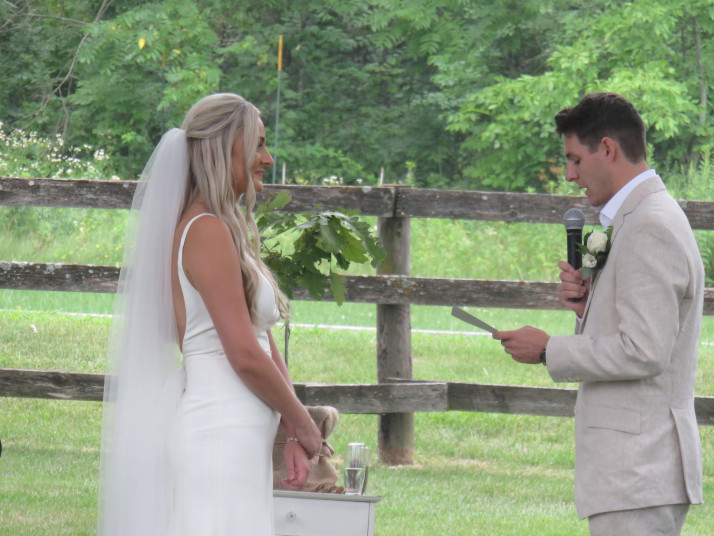Making Weddings a Family Affair
Making weddings a family affair is a great idea when there are children in the picture. Whether they belong to one or both of you, including your children in the ceremony adds a great new dimension. It doesn’t take away from the specialness of the moment for the two of you, and you can decide what degree of inclusion is right for you.
It’s common to see children of the couple serve as ring bearers or flower girls, and these are great ways to include younger children in the wedding party. Older children can serve as junior attendants – bridesmaids or groomsmen, and can also serve as escorts to accompany you into the ceremony space.
At a recent wedding, the bride had sourced a lovely childrens book titled, “Wherever You Are: My Love Will Find You” by Nancy Tillman. The text expresses the constancy of love and can be applied to the love of parents for children and is also applicable to the love between the couple. I’ve added it to my readings library and also used it for a Child Welcoming last weekend where it also fit perfectly. At the wedding, the couple had purchased a copy of the book and presented it to the two young girls to follow along as the reading was offered. It was a perfect, sweet moment, and one more example of making weddings a family affair.
The highlight of any wedding is the vows. After the couple exchanges promises with their vows, it’s a perfect time to recognize the new family that is formalized with the marriage of the parents. Bring the children (if still dependents) up and make promises to them, too. These can be simply worded, heartfelt promises to provide a safe, loving home for this new family, or they can be more elaborate. They can be done repeat after me style or spoken directly by the “new” step-parent.
Gifting a memento of the day to children is another way to make it special for them. I’ve seen everything from necklaces to family pictures to a hockey stick (the new stepdad and son shared a love of the game) gifted during ceremonies. It always provides a special moment when topped off with loving hugs shared all around.
A final option for making weddings a family affair is to bring the parents and children together to share in a family ritual. With younger children a sand ceremony utilizing colors representing each of the family members works well. Adult children may enjoy a flower blending ceremony or a family toast.
When making weddings a family affair it is always best to ask the children (of any age) if they would like to participate, and if so, in what manner. You can have some suggestions to offer, but take your cue from them. Following a divorce or death of a parent, the children may be dealing with mixed or conflicted feelings. They may be most comfortable out of the spotlight. For the same reason, I don’t ever ask children to speak at the ceremonies.
No matter what level and type of involvement you choose for your children at your wedding, make sure that you’re honoring and respecting their needs and wishes. You want this first day as newly formalized family to be filled with smiles and happiness as you bring families together and begin a new journey together.

